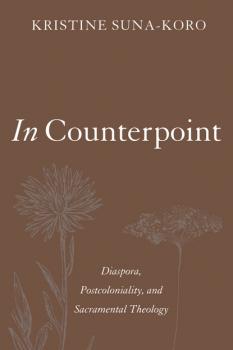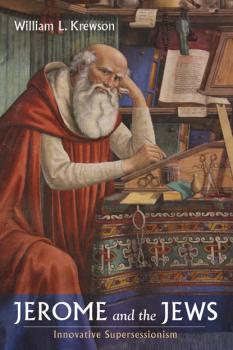Историческая литература
Различные книги в жанре Историческая литератураIn Counterpoint
What does postcoloniality have to do with sacramentality? How do diasporic lives and imaginaries shape the course of postcolonial sacramental theology? Neither postcolonial theorists nor sacramental theologians have hitherto sought to engage in a sustained dialogue with one another. In this trailblazing volume, Kristine Suna-Koro brings postcolonialism, diaspora discourse, and Christian sacramental theology into a mutually critical and constructive transdisciplinary conversation. Dialoguing with thinkers as diverse as Edward Said and Gayatri Spivak as well as Francis D'Sa, S.J., Martin Luther, Mayra Rivera, and John Chryssavgis, the author offers a postcolonial retrieval of sacramentality through a robust theological engagement with the postcolonial notions of hybridity, contrapuntality, planetarity, and Third Space. While exploring the methodological potential of diasporic imaginary in theology, this innovative book advances the notion of sacramental pluriverse and of Christ as its paradigmatic crescendo within the sacramental economy of creation and redemptive transformation. In the context of ecological degradation, In Counterpoint argues that it is vital for the postcolonial sacramental renewal to be rooted in ethics as a uniquely postcolonial fundamental theology.
Jerome and the Jews
Jerome rocked the boat in which the early church had been comfortably settled for two hundred years. He upset Christian tradition by arguing for the priority of the Hebrew Old Testament over the supposedly inspired Greek Septuagint. He learned Hebrew from a Jewish teacher and translated the Old Testament directly from Hebrew into Latin. Not only did his new Latin translation create turmoil, but the inclusion of Jewish interpretations in his commentaries furthered the controversy. Unlike his contemporaries, Jerome viewed the Jews and their homeland as a source of information and inspiration.
However, at the same time, Jerome freely admitted his hatred of the Jews and their religion. His caustic rhetoric reinforced the Christian church's displacement of the Jews, but it seems to oppose his move toward appreciating Jewish resources. This book illuminates Jerome's contradictory personality, proposes a solution, and explores avenues for current Christian and Jewish relations in light of Jerome's model.
Postcoloniality, Translation, and the Bible in Africa
This book is critically important for Bible translation theorists, postcolonial scholars, church leaders, and the general public interested in the history, politics, and nature of Bible translation work in Africa. It is also useful to students of gender studies, political science, biblical studies, and history-of-colonization studies. The book catalogs the major work that has been undertaken by African scholars. This work critiques and contests colonial Bible translation narratives by privileging the importance African oral vitality in rewriting the meaning of biblical texts in the African sociopolitical, political, and cultural contexts.
Life after Tragedy
Much has been written on the centenary of the First World War; however, no book has yet explored the tragedy of the conflict from a theological perspective. This book fills that gap. Taking their cue from the famous British army chaplain Geoffrey Studdert Kennedy, seven central essays–all by authors associated with the cathedral where Studdert Kennedy first preached to troops–examine aspects of faith that featured in the war, such as the notion of «home,» poetry, theological doctrine, preaching, social reform, humanitarianism, and remembrance. Each essay applies its reflections to the life of faith today.
The essays thus represent a highly original contribution to the history of the First World War in general and the work of Studdert Kennedy in particular; and they provide wider theological insight into how, in the contemporary world, life and tragedy, God and suffering, can be integrated. The book will accordingly be of considerable interest to historians, both of the war and of the church; to communities commemorating the war; and to all those who wrestle with current challenges to faith. A foreword by Studdert Kennedy's grandson and an afterword by the bishop of Magdeburg in Germany render this a volume of remarkable depth and worth.
A Land Full of God
A Land Full of God gives American Christians an opportunity to promote peace and justice in the Israeli-Palestinian conflict. It shows them how to understand the enmity with brief, digestible, and comprehensive essays about the historical, political, religious, and geographical tensions that have led to many of the dynamics we see today. All the while, A Land Full of God walks readers through a biblical perspective of God's heart for Israel and the historic suffering of the Jewish people, while also remaining sensitive to the experience and suffering of Palestinians. The prevailing wave of Christian voices are seeking a pro-Israeli, pro-Palestinian, pro-peace, pro-justice, pro-poor, and ultimately pro-Jesus approach to bring resolution to the conflict.
Walking the Rift
The Victorian encounter with Africa contains many micro-narratives that call for a questioning of an old consensus. Tentative assumptions as to the motives of early missionaries and colonial personnel often prove less than satisfactory due to stereotypes and unexplored archives. The need for new master narratives that move beyond the old paradigms of Western expansion and African victimization are being called for by scholars of the Global North and South–narratives that allow room for strong evidence of an egalitarian joint endeavor and African cultural vitality without avoiding the investment in imperialism practiced by colonial personnel. Based on extensive archival research, Walking the Rift advocates an alternative proposal–missionaries and administrators caught in the grinding of contradictory opposites. As a professional artist, Alfred Robert Tucker captured this tug-of-war on canvas, but similar dichotomies are found in his approach to marriage contracts, slavery, mission and church organizational structure, alliance with the colonial government and African partnership. Tucker is a representative figure–a prism to shine light on those involved in the British East African project. Like many in the early encounter with Africa, he was neither a consistent imperialist nor a complete egalitarian idealist, but operated in both spheres without creating a third.
Postcolonial Voices from Downunder
How do indigenous matters inform, irritate and advance postcolonial theologies and postcolonial biblical criticisms? What options emerge from confronting readings of religious, customary, scriptural, political and cultural texts, traditions, leanings, bodies and anxieties? These two questions epitomize the concerns that the contributors address in this collection. The postcolonial voices that come together between the covers of this book show that indigenous subjects and heritages do matter in the theological and hermeneutical business, for we all have something to learn from First Peoples, and that theologians and biblical critics have much to gain from (and offer to) confronting and troubling traditional views and fears. Together in this book, the postcolonial voices from Downunder (geographically: Oceania, Pasifika; ideologically: marginalized, minoritized) confront political and religious bodies, including Christian churches, on account of their participation in and justification of the occupation and poaching of native lands, wisdom, wealth, and titles. This book is for First Peoples and Second Peoples, whether they are down under or up yonder, who are curious about possible advents of postcolonial theologies and postcolonial biblical criticisms in the future.
The West and China in Africa
The West and China in Africa: Civilization without Justice is an outcome of Dr. Alemayehu Mekonnen's personal intellectual struggle, life experience, and an attempt to understand Christ and his message within the cultural context of Africa. The intellectual struggle has to do with the paradoxical reality of Africa's situation. An attempt to reconcile the seemingly irreconcilable situation of Africa tests and stretches anyone's mind beyond limit. According to archaeological and geological findings, Africa is the first habitat of humanity and yet it is the least habitable place in the world today. The continent is extremely rich with natural resources, but it is known for poverty, disease, malnutrition, and starvation. As some Afro-centric scholars argue, Africa is the birthplace of world civilization and yet it is known for destruction. Social instability is rampant; coup d'etat and counter coup d'etat is common. Displacement and the number of refugees are ever increasing.
As a person of African origin and now a US citizen, Mekonnen was able to see realities objectively in the eyes of an African and American. This book explores the myth and reality of Western, Eastern, and African dictators' role in the history of Africa.
HIS112: Survey of Western Civilization II
This is a Milestone Custom Sourcebook for Professor Journey Steward.









